Will Hasina’s shadow continue to loom over Dhaka-Delhi ties?
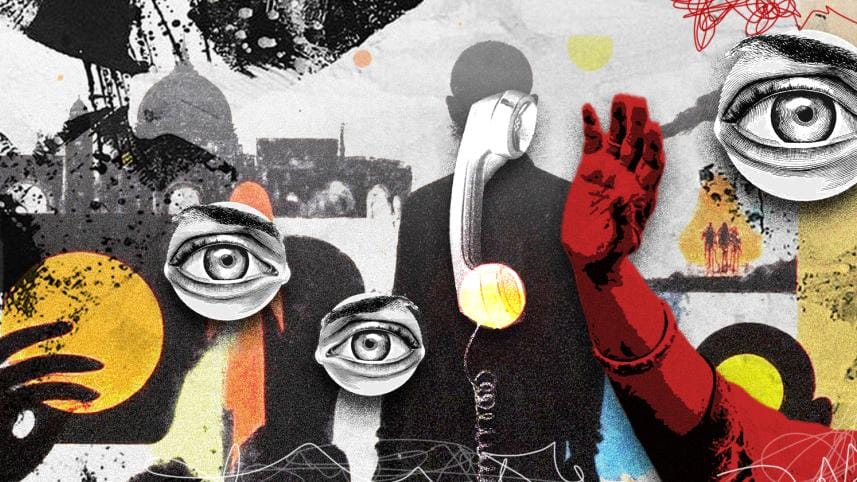
Sheikh Hasina's "leaked" phone call conversations started surfacing about two weeks after she fled to Delhi while facing a people's uprising. The audio clips began circulating on social media with the deposed prime minister feigning a candid conversation, but in fact passing on messages to her party cadres. In one conversation, she said she was not far away, quite close by actually… and she could enter Bangladesh in a jiffy if needed. In another clip, she was heard saying, as she did more recently, that those attacking the houses of Awami League faithfuls had houses of their own, too. The suggestion of counterattacks and incitement of arson was evident.
In his interview with the Indian state-run news agency Press Trust of India about a month after taking over as the interim head of government, Prof Muhammad Yunus was clear: India could keep their trusted ally, but they would have to keep her quiet. The Hindu reported on September 5, "Muhammad Yunus, the head of Bangladesh's interim government, has said that former Prime Minister Sheikh Hasina making political remarks from India is an 'unfriendly gesture,' asserting that she must remain silent to prevent the discomfort to both countries until Dhaka requests her extradition."
Yunus was quoted saying, "If India wants to keep her until the time Bangladesh (government) wants her back, the condition would be that she has to keep quiet."
The "leaked" phone conversations stopped surfacing.
Within a couple of months, the ousted premier emerged on social media again, this time addressing large crowds virtually. There was one in London on December 10 that attracted much attention.
The Indian foreign secretary's visit on December 9 provided Dhaka with another opportunity to express its ire about Hasina speaking in public. It was clear from deliberations of both sides that the message had been sent and duly received. Vikram Misri went back to report to the parliamentary standing committee on external affairs, headed by Congress leader Shashi Tharoor, that "India does not endorse deposed Prime Minister Sheikh Hasina's criticism of the interim government in Bangladesh and it remains a pinprick in India-Bangladesh relationship," according to a report in The Hindu. And again, Hasina stopped speaking in public.
More recently, earlier in February, Sheikh Hasina's scheduled address triggered mass anger which is said to have led to the demolition of what remained (it had been partially destroyed in the aftermath of Awami League's fall in August last year) of her father's iconic house on Dhanmondi Road 32. This was the same house where Bangladesh's founding president, Sheikh Mujibur Rahman, had been assassinated with his entire family (Hasina and her sister were abroad at that time). This was also the same house that had been one of the nerve centres of Bangladesh's independence movement. It had been turned into a museum and demolition of this house was a loss. But the anger that surged among people was perhaps because Hasina and her cohorts, are still to exhibit even a glimmer of admission, let alone repentance, that they were wrong. The former premier, who will perhaps be remembered as an ousted autocrat, remains boastful and completely oblivious to her misdeeds. Instead, she keeps repeating her intentions to mount a comeback and hold trials of her detractors.
The resulting frenzy lasted for a few days when enraged people also attacked houses of other Awami League leaders in Dhaka and elsewhere in the country, besides the one in Dhanmondi.
The interim government then issued a protest to India saying Hasina should not be allowed to make such "false and fabricated" statements. In response, Delhi summoned the Bangladesh envoy to convey that "India desires a positive, constructive and mutually beneficial relationship with Bangladesh, which has been reiterated several times."
Answering media queries about the Bangladeshi envoy being summoned, Indian foreign ministry spokesperson Randhir Jaiswal went on to add that Delhi had said it was "regrettable that regular statements made by Bangladesh authorities continue to portray India negatively" holding them responsible for internal governance issues. "These statements by Bangladesh are in fact responsible for the persistent negativity."
The foreign ministry official clarified that Sheikh Hasina was speaking "in her individual capacity" and that India had nothing to do with it.
The change of stance is obvious, as is the message. India could not have been clearer that it is not going to hold back Hasina or discourage her from speaking out publicly. The interim government will have to figure out how to resolve whatever problems that might trigger within Bangladesh.
While there are no laws to restrict exiled political leaders—or autocrats, for that matter—from making public statements, precedence might be said to have contributed to certain protocols for the host country.
For instance, Idi Amin of Uganda was granted asylum in Saudi Arabia but forbidden from engaging in politics. In fact, it is reported that Idi Amin was under constant surveillance to ensure that he had no direct contact with Ugandan politics. He was never allowed to return to Uganda.
Ferdinand Marcos of the Philippines was flown to Hawaii with US military assistance where he was given asylum, but the US refused to let him make a political comeback from US soil. Despite his attempts to maintain influence in Filipino politics, the US discouraged him from such engagement.
Mengistu Haile Mariam of Ethiopia fled to Zimbabwe with Robert Mugabe's assistance where he was granted asylum. Zimbabwe refused repeated extradition requests from Ethiopia for crimes against humanity, but Mengistu was mostly kept away from politics. He continues to live in Zimbabwe under state protection.
Clearly, then, India's refusal to discourage, or restrict, Hasina indicates that it is not too eager to placate the Bangladesh government. Is this a sign for the kind of relationship India wants with Bangladesh? Although it has not been always articulated, except that one time by the Indian army chief, the Indian undertone has always been that it does not quite consider this interim government worthy of its full attention or due consideration since it is not elected.
The latest statement clarifies that India will let Hasina speak whether it bothers Bangladesh or not. But that is just one aspect. It also suggests that India still considers Hasina valuable (or might we say bankable?) and will not lay down restrictions for such a friend only to please Bangladesh's incumbent government. Although there appeared to have been some encouraging movement on both sides, the bilateral relations have remained somewhat wary.
The interim government has always made it clear that it does not mind if Hasina remains in India for the time being (provided that she refrains from public speeches) until her trial is completed when the Bangladesh government will look to have her extradited. So far, India has not spoken about it definitively and will presumably drag its feet for as long as possible. If the bilateral relations remain as they are, India is unlikely to extradite the ousted premier to face trials in Bangladesh, for which she could be given the capital punishment. But that will be later.
Following the foreign ministers' meeting in the Omani capital, there was little substance in what either of them said about their discussions. They touched all the points but refused to give away the specifics. But since then, Bangladesh's council of advisers have quieted down on their India rhetoric, while Hasina has also gone quiet in what appears to be a strained détente.
Tanim Ahmed is digital editor at The Daily Star.
Views expressed in this article are the author's own.
Follow The Daily Star Opinion on Facebook for the latest opinions, commentaries and analyses by experts and professionals. To contribute your article or letter to The Daily Star Opinion, see our guidelines for submission.




 For all latest news, follow The Daily Star's Google News channel.
For all latest news, follow The Daily Star's Google News channel. 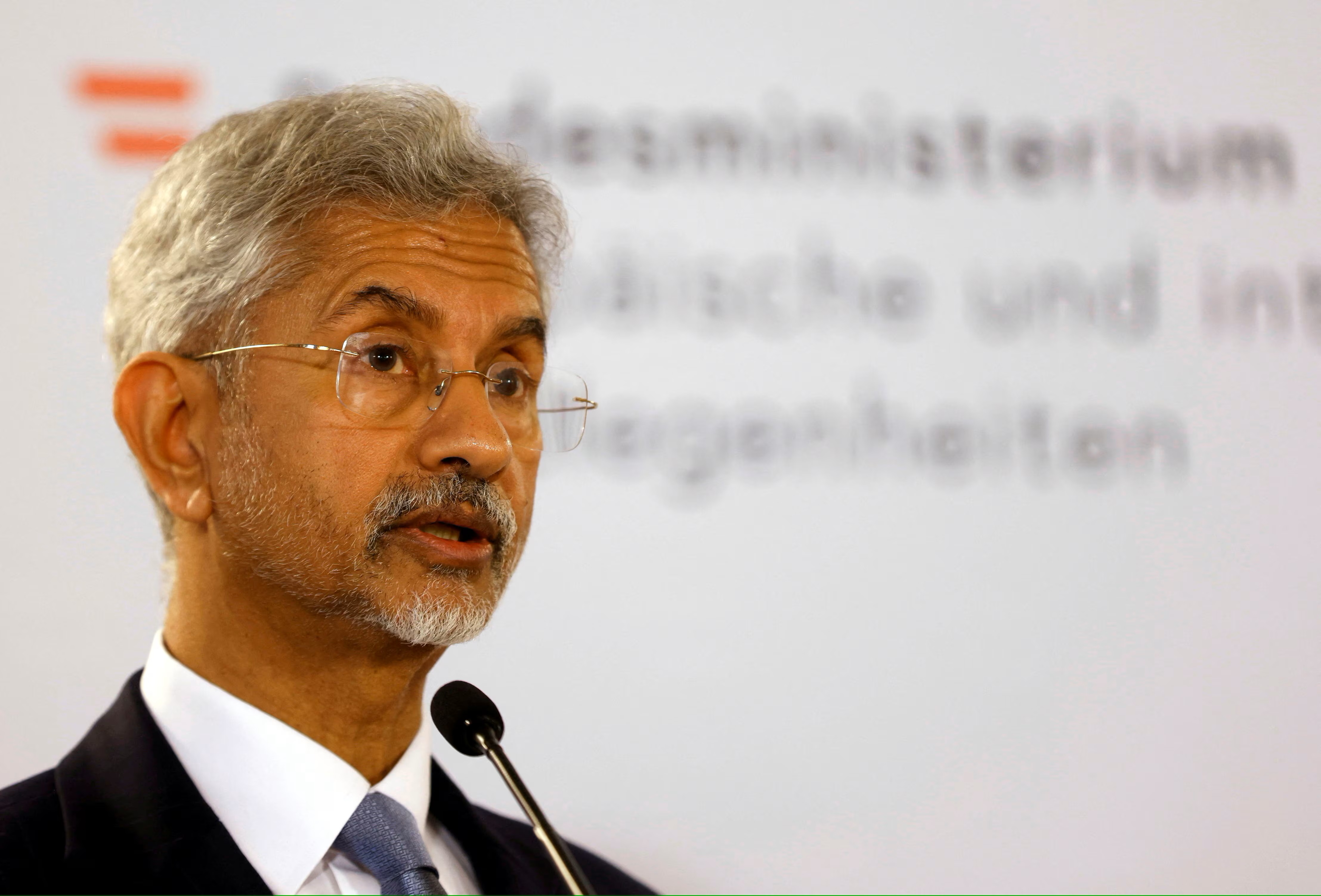
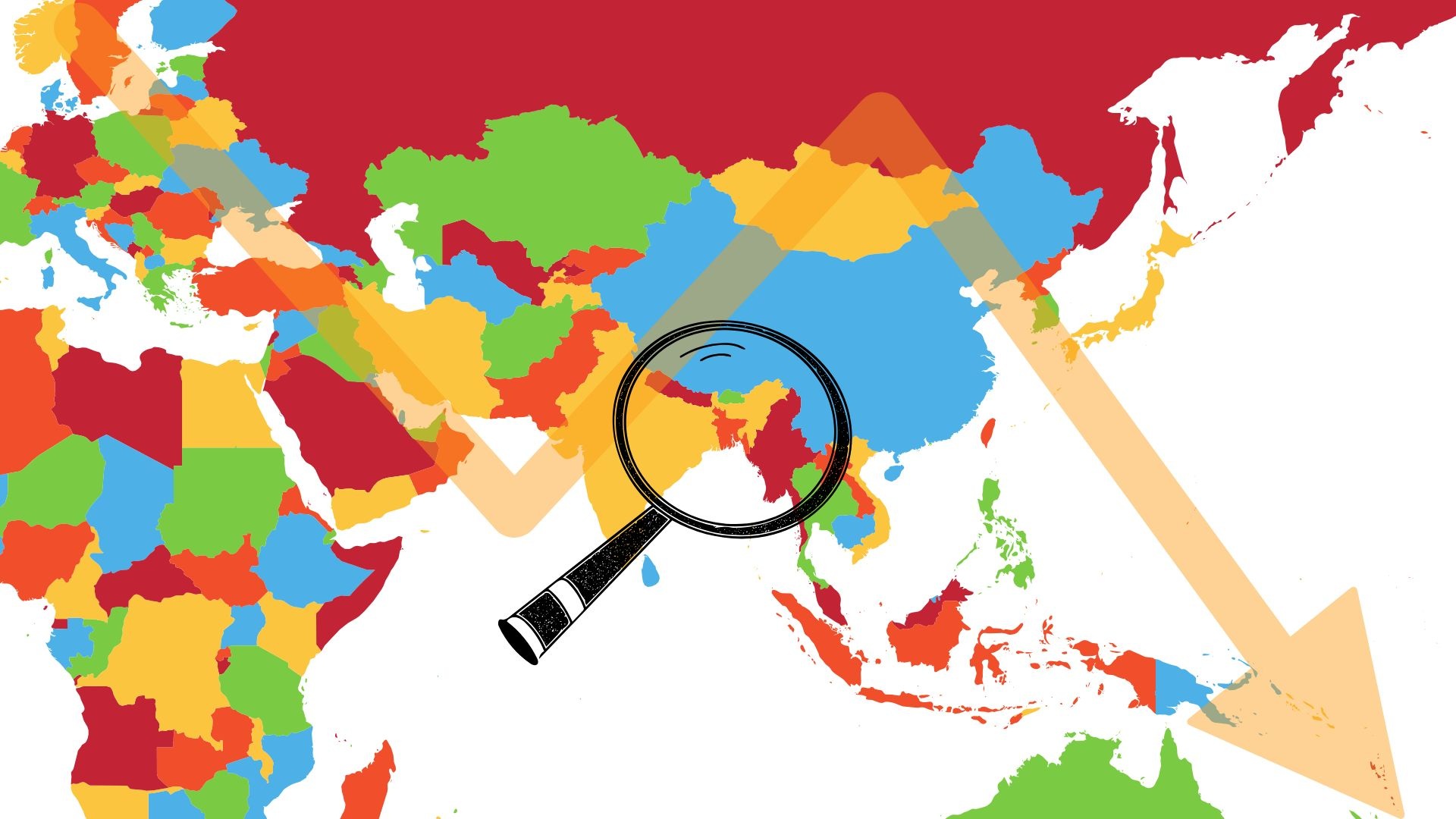
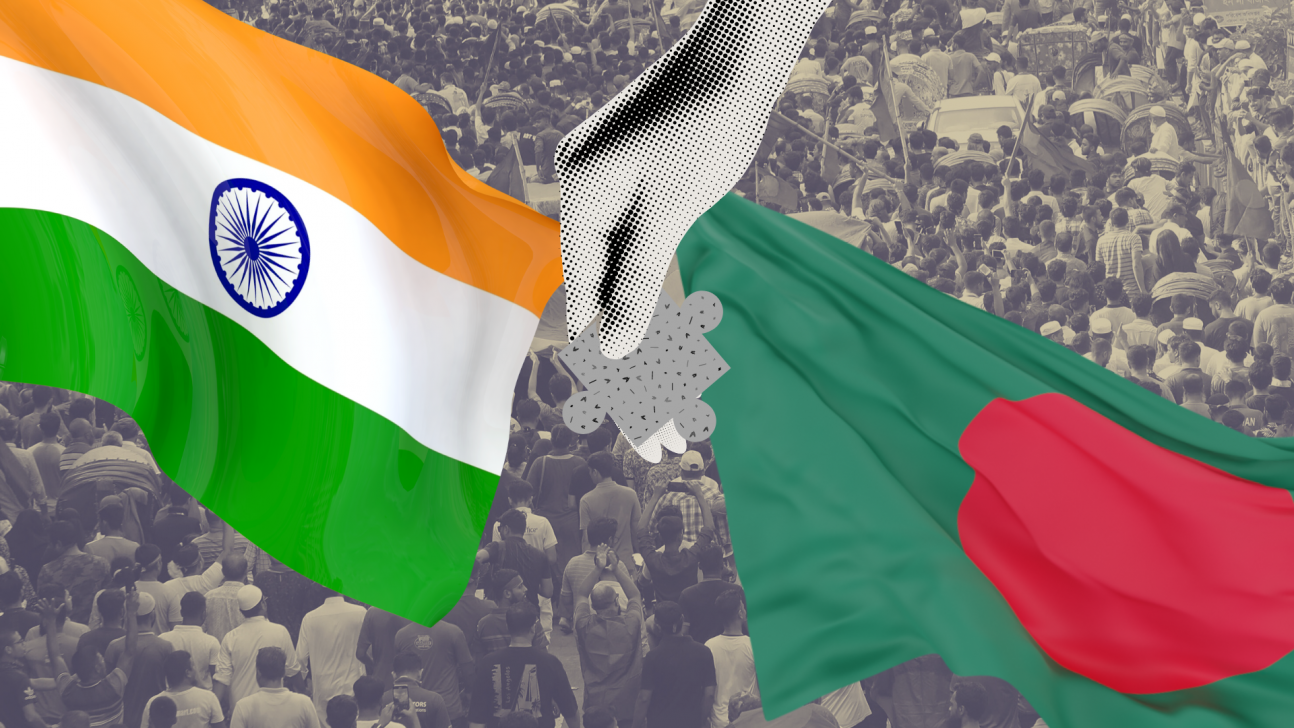

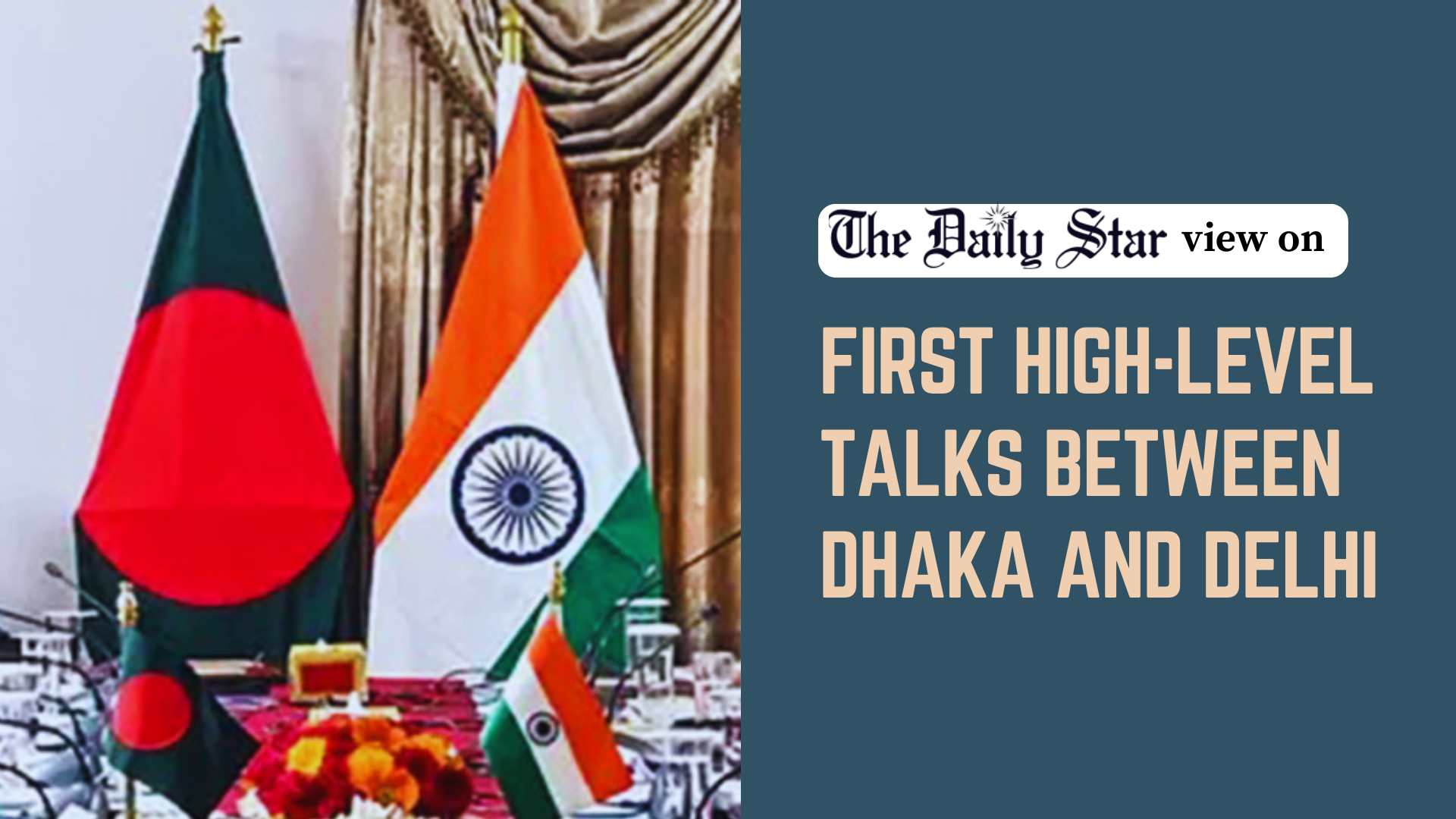
Comments